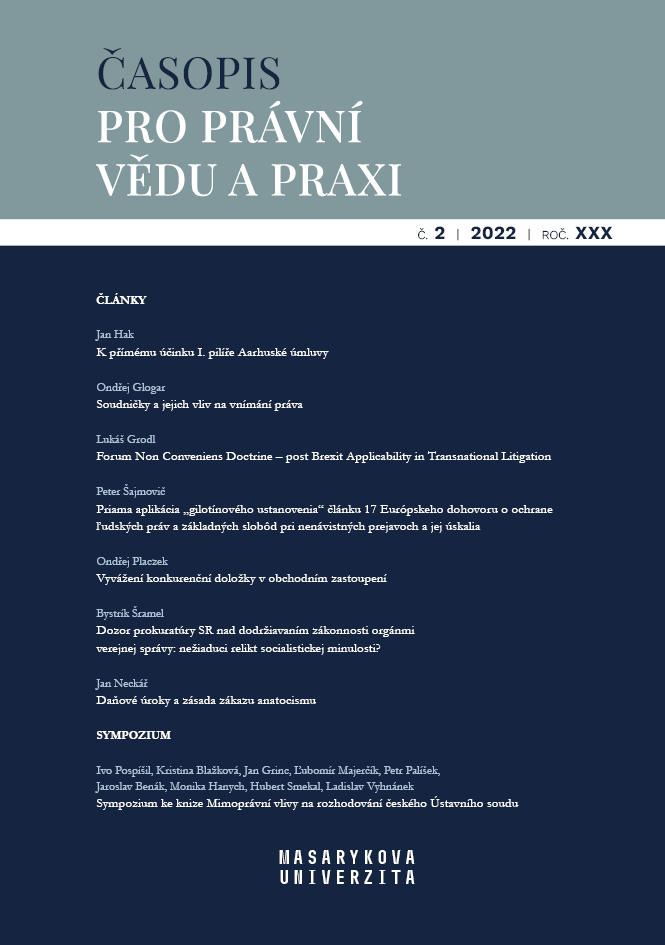Soudcovská filozofie: právní, nikoli mimoprávní vliv na soudní rozhodování
Judicial Philosophy: Legal, rather than Extra-legal Influence on Judicial Decision-Making
Author(s): Kristina BlažkováSubject(s): Constitutional Law, Philosophy of Law, Sociology of Law
Published by: Masarykova univerzita nakladatelství
Keywords: Judicial Philosophy; Theoretical Disagreement about Law; Formalism; Pragmatism, Substantialism.
Summary/Abstract: Judicial decision-making is in most cases inspired by the judge’s effort to fulfil the requirements of her function and adopt the best possible decision in light of what she deems the concept of law to be. An import factor influencing judicial decision-making on the micro-level is judicial philosophy. Judicial philosophy may be defined as an articulable and rationally defensible method of judicial decision-making which is influenced by the judge’s view of such things as his judicial function, principles of interpretation of law, function of law and division of powers. It is closely related to legal axiology, namely the values which make up the concept of law. The article thus complements the model of judicial decision-making presented in the book Extralegal Influences on the Decision-Making of the Czech Constitutional Court with the concept of judicial philosophy. The article first analyses the concept in relation to the values of legal certainty, individual justice and efficiency of law. Subsequently, it introduces three main types of judicial philosophy, legal formalism, substantialism and pragmatism, and also focuses on judicial activism as part of the concept of judicial philosophy.
Journal: Časopis pro právní vědu a praxi
- Issue Year: 30/2022
- Issue No: 2
- Page Range: 411-421
- Page Count: 11
- Language: Czech

